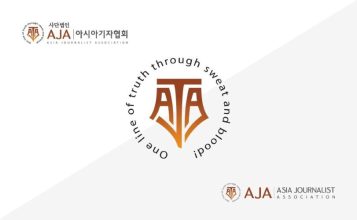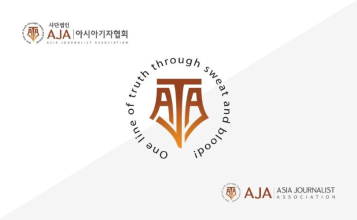AJA Newsbites – November 28, 2025

AJA Newsbites is a curated roundup of major news and developments from across Asia, brought to you by members of Asia Journalist Association (AJA)
Lee Sang-ki, THE AsiaN, Korea
Political observers increasingly argue that the People Power Party (PPP) must take the initiative in adopting a bold inclusion strategy for Gwangju and the broader Honam region. Honam has long been a stronghold of the Democratic Party of Korea (DPK), the current ruling party, consistently withholding support from the PPP in presidential, parliamentary, and local elections. Since helping elect Kim Dae-jung in 1997 and Roh Moo-hyun in 2002, the region has overwhelmingly backed the DPK in nearly every major vote.
Analysts note that Honam now represents Korea’s last major frontier for balanced national development, with the PK region already saturated and the Seoul metropolitan area overconcentrated. The region also holds significant potential in offshore wind power, solar energy, biotechnology, and data centers. If the PPP were to lead renewable-energy reforms, designate Solaseado as a national AI–data hub, and push forward an AI Special Act, it could regain support from moderates and younger generations while challenging the DPK’s long-standing regional dominance—potentially reshaping Korea’s political landscape.
Norila Daud, Malaysia World News, Malaysia
More than 6,000 Malaysians stranded by the floods in Thailand have safely returned home since the rescue mission began last Sunday. The government, through the Foreign Ministry (Wisma Putra), continues to closely monitor the situation and will expedite assistance wherever necessary.
Prime Minister Datuk Seri Anwar Ibrahim said the rescue efforts were made possible with the support of nearly 20 Malaysian volunteer organisations working alongside Wisma Putra, including 13 volunteer firefighters, as well as the assistance of the Thai authorities.
“I am deeply moved by the courage and perseverance of our volunteer team, who were willing to wade through floodwaters and face risks to save Malaysians. My deepest appreciation and salute to our heroes,” he said in a Facebook post today.
Anwar also expressed gratitude to Wisma Putra, the Malaysian Embassy in Thailand, the Consulate-General in Songkhla, Thai authorities, local rescue teams, and Universiti Utara Malaysia (UUM) management for coordinating the evacuation of 36 students and two lecturers from UUM who had been stranded in Hat Yai.
“I urge everyone to continue praying so that every step taken by our volunteers and the entire team will be eased as they work to bring home Malaysians still trapped in Thailand. The government, through Wisma Putra, will continue to closely monitor the situation and provide assistance as quickly as possible,” he said.
Chhay Sophal, Cambodia News Online, Cambodia
Senior officials of the Royal Academy of Cambodia (RAC) have encouraged both RAC and Korea Development Institute (KDI) staff to produce short videos highlighting various aspects of the two nations’ societies, aiming to promote a clearer understanding of their traditions, cultures, customs, and social realities.
This initiative was proposed by Dr. Yang Pov, Secretary-General of the RAC, during a seminar on “Cooperation Between RAC and KDI” held on Wednesday. He noted that jointly promoting the positive aspects of both societies and peoples would help deepen mutual understanding, especially by countering activities that spread negative information about Cambodia and Korea.
Dr. Yang Pov added that RAC and KDI have jointly conducted numerous research projects and exchanged ideas between the two institutions. This, he said, forms an important foundation for studying and understanding each other through cooperation—not only within the framework of scientific research, but also in broader national contexts. He further emphasized that Cambodia has sent students to study at KDI, which has contributed significantly to strengthening the capacities of officials and leaders within the Royal Academy of Cambodia.
Bob Iskandar, Indonesia Global News, Indonesia
The rupiah weakened to around Rp 16,700 amid a broad global risk-off mood, prompting Bank Indonesia (BI) to strengthen its market intervention and policy coordination. BI attributed the currency’s depreciation to heightened global uncertainty and a stronger U.S. Dollar Index. Governor Perry Warjiyo confirmed intensified intervention in the spot, NDF, and DNDF markets, along with government bond purchases to stabilize liquidity. Deputy Governor Destry Damayanti highlighted elevated U.S. Treasury yields as the main driver of capital outflows from emerging markets. BI also revised its 2025 growth forecast upward to 5.5 percent, supported by firm domestic demand and fiscal stimulus.
Nasir Aijaz, Sindh Courier, Pakistan
The United Arab Emirates (UAE) is currently not issuing visas to Pakistani nationals, interior ministry officials told a Senate committee on Thursday, revealing that Pakistan had narrowly avoided a passport ban by the Gulf nation.
Additional Interior Secretary Salman Chaudhry, while briefing the Senate Functional Committee on Human Rights, said: “The Pakistani passport narrowly escaped a ban from the UAE and Saudi Arabia.” He noted that if such a ban were imposed, it would be extremely difficult to have it lifted. The official added that the UAE is currently issuing visas only to holders of blue passports and diplomatic passports. He further stated that, a few months ago, a large number of Pakistanis were deported from Saudi Arabia over various legal and immigration violations.
The official also disclosed that many Afghan citizens had been residing in the Gulf under Pakistani identities. The neighboring country, he said, had “interfered in our system and managed to get passports issued.” “We also hold responsibility for this,” he admitted, adding that corruption must have been involved.
Bhanu Ranjan Chakraborty, Asia Journalist Association, Bangladesh
German Ambassador to Dhaka Rüdiger Lotz has expressed hope that Bangladesh’s upcoming parliamentary elections will be fair, free, credible, and participatory. He conveyed this expectation during a discussion titled “DCAB Talk,” organized by the Diplomatic Correspondents Association, Bangladesh (DCAB), at the National Press Club in Dhaka on 26 November.
The ambassador said that free, fair, and participatory elections require ensuring full opportunities for people to vote and preventing anyone from being excluded. Key conditions, he noted, include the participation of all voters—regardless of gender—and genuine competition among political parties. “I think we are seeing preparations for that,” he added.
Ambassador Lotz also emphasized the importance of peaceful conduct throughout the election process. Voters must be able to express their opinions in an environment free from fear, he said, and votes must be counted accurately, including those cast by voters living abroad.
Pooneh Nedai, Shokaran Magazine, Iran
Ali Larijani, Secretary of Iran’s Supreme National Security Council, stated that the Islamic Republic has not abandoned genuine negotiations and never will. In an interview with Pakistan’s HUM TV, he said that anyone who truly seeks dialogue does not predetermine the outcome, as doing so would mean it is not a real negotiation. Larijani stressed that Iran remains committed to authentic talks. He also reiterated that Iran is not pursuing nuclear weapons, but will continue to advance its peaceful nuclear program in a serious manner.
ⓒ THE AsiaN | All rights reserved
This content is copyrighted by THE AsiaN. If you wish to share it, please do so without modifying the original text and always include the source link. Unauthorized editing or sharing without proper attribution may result in legal consequences.


